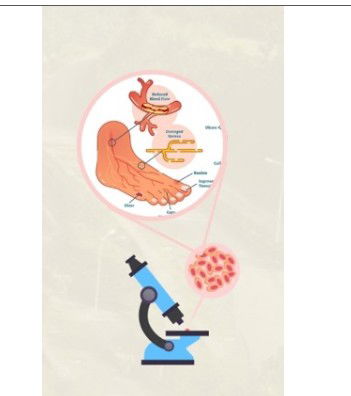Health
Nagaland University researchers find plant compound to treat diabetic wound, foot ulcers

New Delhi, Oct 21
Researchers at the Nagaland University have identified a naturally occurring plant compound called ‘Sinapic acid’ as a powerful therapeutic agent that can significantly enable wound healing in patients with diabetes.
A diabetic wound is a slow-healing sore, most often a foot ulcer. Also known as diabetic foot, it raises the risk of nerve damage (neuropathy) and poor blood circulation, foot ulcers, infections, and amputation in severe cases.
The study, published in the journal Nature Scientific Reports, demonstrated that oral administration of Sinapic acid can accelerate diabetic wound healing in preclinical models.
Sinapic acid is a naturally occurring antioxidant found in various edible plants.
The research established that the compound works by activating the SIRT1 pathway, which plays a crucial role in tissue repair, angiogenesis, and inflammation control.
The discovery marks a major advancement that could result in safe, natural, and effective treatments for diabetic wound management.
“Diabetes mellitus remains one of the world’s most pressing chronic diseases, affecting hundreds of millions globally. Among its serious complications is delayed wound healing, often resulting in diabetic foot ulcers, infection, and, in severe cases, amputation. Existing synthetic drugs have shown limited efficacy and often cause undesirable side effects,” said Prof. Pranav Kumar Prabhakar, Head, Department of Biotechnology, School of Engineering and Technology, Nagaland University.
“We found that a lower dose (20 mg/kg) was more effective than a higher one (40 mg/kg), a phenomenon known as ‘Inverted Dose-Response.’ This result not only optimises dosage strategy but also has significant clinical implications for future drug development,” he added.
Importantly, the discovery will help reduce the risk of amputation and accelerate recovery in diabetic foot ulcers and providing an affordable, natural oral therapy, improving accessibility for patients in rural and resource-limited settings.
The research developed robust preclinical evidence that Sinapic acid enhances wound healing, improves metabolic health, and mitigates oxidative stress in diabetic models. The next phase includes pilot clinical trials, said the researchers.



































